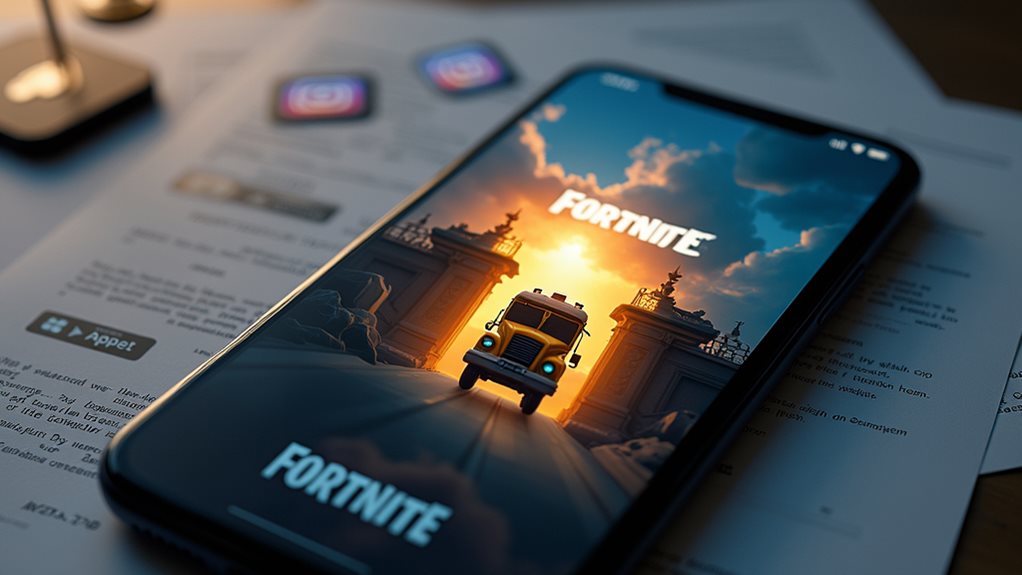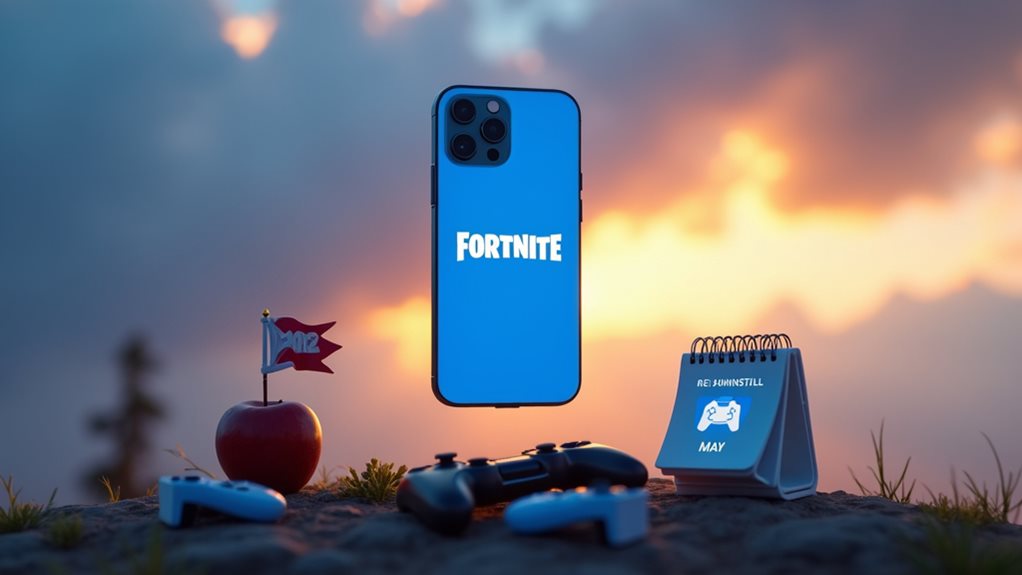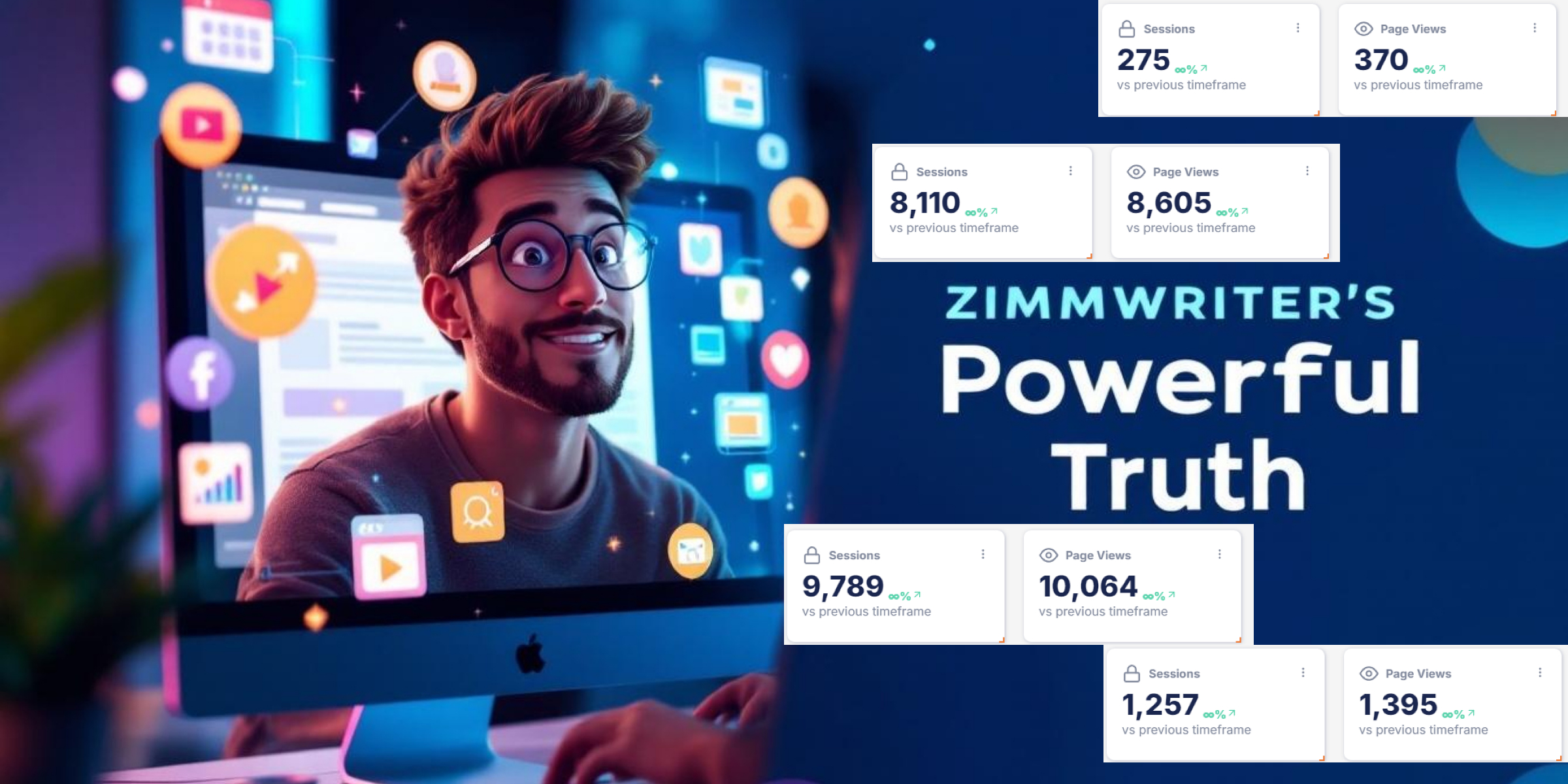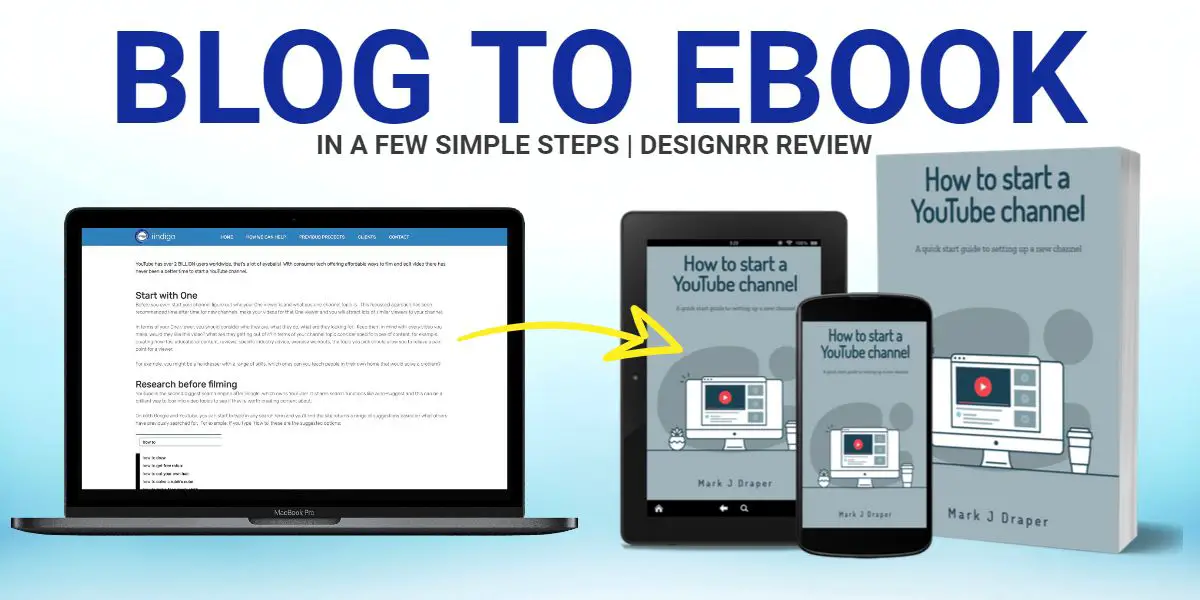Fortnite will return to iOS devices in the U.S. between May 5-11, 2025, following a court ruling that found Apple violated a 2021 injunction. The April 2025 decision prohibits Apple from taxing purchases made outside their ecosystem, allowing developers like Epic Games to communicate freely with users. Epic has proposed a “peace deal” with zero fees on web transactions worldwide and plans to expand its Epic Games Store to iOS. This landmark ruling markedly changes how digital marketplaces operate.

After nearly five years of absence, Fortnite is finally making its way back to iOS devices in the United States. The popular battle royale game is expected to return between May 5-11, 2025, following Apple‘s compliance with a court injunction that found their practices anticompetitive.
You’ll recall that Fortnite was originally removed from the App Store in August 2020 after Epic Games implemented a direct payment system that bypassed Apple’s 15-30% commission fees. This bold move sparked a lengthy legal battle between the two tech giants.
The April 2025 court ruling determined that Apple had willfully violated a 2021 injunction aimed at curtailing their restrictive marketplace policies. The ruling now prohibits Apple from taxing purchases made outside their ecosystem or blocking communication between developers and users. Judge Yvonne Gonzalez Rogers issued this decisive ruling that fundamentally changes developer-platform relationships.
Epic Games has proposed a “peace deal” that would allow Fortnite to return globally if Apple extends the court-ordered framework beyond U.S. borders. This framework enables zero fees on web transactions, a significant departure from Apple’s traditional commission structure.
Epic’s proposed peace deal offers Apple a path to global Fortnite restoration in exchange for zero-fee web transactions worldwide.
You can expect Fortnite to arrive in the United Kingdom and Japan during the second half of 2025. Epic has already successfully relaunched the game on Android via the Epic Games Store in August 2024.
As part of their strategy, Epic plans to expand their own Epic Games Store to iOS alongside Fortnite’s return. Epic Games CEO Tim Sweeney celebrated the ruling with a triumphant announcement on social media, highlighting the victory against Apple’s restrictive practices. They’ve even created a “Pie Patron” outfit as a symbolic gesture toward potential resolution.
The court’s decision represents a major shift in the digital marketplace, challenging Apple’s longstanding commission model and potentially redistributing revenue for in-app purchases.
Developers are increasingly considering alternative payment ecosystems as regulatory precedents emerge.
For you as a player, this means expanded payment options, potentially lower costs, and the restoration of cross-platform progression. Millions of iOS users will soon regain access to Fortnite’s meta-features without Apple taking a cut of transactions.
The ongoing dispute continues to shape how digital marketplaces operate, with implications extending far beyond gaming.
Frequently Asked Questions
How Much Revenue Did Apple Lose During Fortnite’s Absence?
The exact amount of revenue Apple lost during Fortnite’s absence isn’t precisely documented.
You should note that iOS was expected to generate less than 6% of Fortnite’s total revenue in 2020, suggesting a significant but limited impact.
Apple’s 30% commission on these transactions would represent the lost revenue.
The absence likely denied Apple substantial income, considering Fortnite had surpassed $1 billion in lifetime mobile revenue before being removed from app stores.
Will Other App Stores Launch on Ios Following This Ruling?
No, this ruling doesn’t directly enable other app stores on iOS.
While you’ll see developers offering alternative payment methods outside Apple’s ecosystem, technical barriers remain for full third-party app stores.
The court decision addresses payment steering but doesn’t force Apple to allow competing app stores.
Future litigation or regulatory pressure, especially from Europe’s Digital Markets Act, might eventually change this limitation.
For now, Apple maintains control over app distribution on iOS despite the payment changes.
How Did the Legal Battle Affect Fortnite’s Overall Player Count?
The legal battle had minimal direct impact on Fortnite’s overall player count.
While you can see the game reached 650 million registered players by 2025 (up 30% from 2022), this growth occurred despite iOS restrictions.
The return to iOS restored access to Apple’s 1.5 billion device ecosystem, but player numbers were already robust before this, with 500 million registered users by 2022.
Most growth appears linked to Chapter 5 updates and partnerships rather than platform availability.
What Other Gaming Companies Supported Epic’s Lawsuit Against Apple?
You’ll find that several gaming-adjacent companies supported Epic’s lawsuit against Apple, though the background information doesn’t specifically mention gaming companies by name.
Microsoft took a stance by announcing app store fairness principles that contrasted with Apple’s practices.
The Coalition for App Fairness, which Epic helped form, likely included gaming companies, but they aren’t explicitly identified in the provided information.
Spotify and Match Group supported Epic, though they’re not gaming companies.
Can Players Transfer In-Game Purchases Between Mobile and Other Platforms?
Yes, you can transfer most in-game purchases between mobile and other platforms in Fortnite. When you link your Epic Games account across devices, purchased items remain accessible everywhere.
However, V-Bucks have some limitations. V-Bucks purchased on PlayStation, Xbox, PC, and Android share a common wallet, but those bought on Nintendo Switch stay on that platform only.
In Korea, V-Bucks purchased on PC won’t transfer to other platforms.





